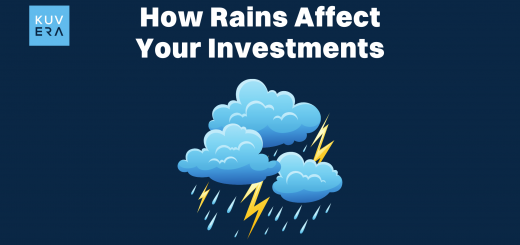The intrinsic value of an asset is its underlying value and not how markets define it. Thus, it represents the movement of stock prices. Intrinsic value is computed by the present value method and relative valuation methods.
The market capitalization of stocks defines the price at which securities are exchanged. When investors look at a share price, they look at the market price for the same. It helps in calculating the risk-return ratio and determines its net potential.
What Is Intrinsic Value?
The intrinsic value of stocks is an accurate metric to identify the performance of a particular stock in the market. This includes both tangible and intangible factors.
Potential investors wish to look into detailed statistics like market analysis, financial statements, and the company’s ability to reflect its true potential.
Determining Intrinsic Value of Stocks
The intrinsic value of shares is dependent on variables that are qualitatively or quantitatively significant. Qualitative factors include business models, overall organizational guidance, and target markets. In addition, quantitative aspects can fundamentally analyze a company’s market capitalization with many financial ratios.
What Is Market Value?
Market value differs from intrinsic value because it represents market capitalisation. The current market value determines if an investor can profit from buying a particular share. There are various formulas to calculate the market value of a stock.
Determining Market Value of Stocks
Market value can depend on an investor’s perspective. The key intention is to get correct estimates of a company’s progress.
These two metrics help in determining how profitable trading in that stock is.
-
Book value per share:
It determines market value per share. It’s a profitable trade if the book value is higher than the market value per share.
Book value = (Total shareholder's equity) – Preferred stock / Weighted average of common shares outstanding
-
P/E ratio:
This metric helps in comparing the valuations of competing companies. It is the market price per share ratio and earnings per share.
The market value of shares depends on certain underlying factors. These factors primarily reflect a company’s financial situation. They include a company’s reported income, cash flows, estimation of future valuation, etc.
Intrinsic Value vs. Market Value
Both intrinsic and market value determine a company’s overall performance and market capitalization. Here is a tabular representation of the differences between intrinsic and market values:
Intrinsic Value |
Market Value |
| Defines a company’s actual/fundamental value. | Defines the current share price of a company. |
| Driven by private opinions and expectations. | Driven by public opinions and expectations. |
| A company’s wealth is defined by its intrinsic value. | The market value may or may not reflect the company’s true wealth. |
| A higher intrinsic value denotes that the stock is undervalued. | A higher market value indicates that the stock is overvalued. |
| Value investors see high intrinsic value as a decent investment opportunity. | Higher market value does not necessarily imply attractive investment opportunities. |
Import your stock portfolio to Kuvera and check any stock’s Current Price, Day’s High, Day’s low, 52-week high, a 52-week low, 1-year change, 5-year change, Price to earnings per share (PR Ratio), Market capitalization to book value (PB ratio), EPS for the last 12 months of the company (TTM EPS), Dividend yield, Market Capitalisation, Trading Volume and Average Traded Volume. You can also place Buy and Sell orders of any stocks on the Kuvera app.
Final Word
Unlike the intrinsic value of stocks, the market value reflects public sentiment and how people value the particular stock. Measuring the intrinsic value of stocks or assets is difficult; it majorly depends on the analysis methods. For investors, it is essential to understand both these financial terms before investing in stocks entirely.
Frequently Asked Questions
-
What happens to the intrinsic value if a stock price goes up?
Intrinsic value is dependent on factors like interest rates and equity risk premiums. Market value is equivalent to public valuation. So if the market value goes up, intrinsic value can go down depending on the parameters that define it.
-
How do you calculate the intrinsic value of stocks?
One should formally estimate the company’s future and present cash flows. After that, individuals can calculate intrinsic value by summing up all the present values.
-
How do traders calculate the market value of stocks?
Market value calculation involves identifying the most recent share price and multiplying it by the total number of outstanding shares.
Interested in how we think about the markets?
Read more: Zen And The Art Of Investing
Check out all our “Investor Education Originals” videos on Youtube and get smart about investing.
Start investing through a platform that brings goal planning and investing to your fingertips. Visit Kuvera.in to discover Direct Plans and Fixed Deposits and start investing today.
#MutualFundSahiHai #KuveraSabs











